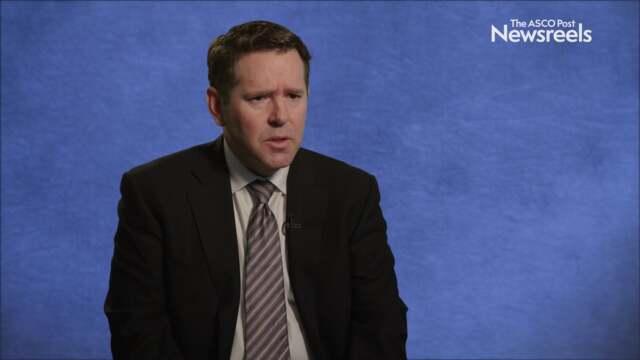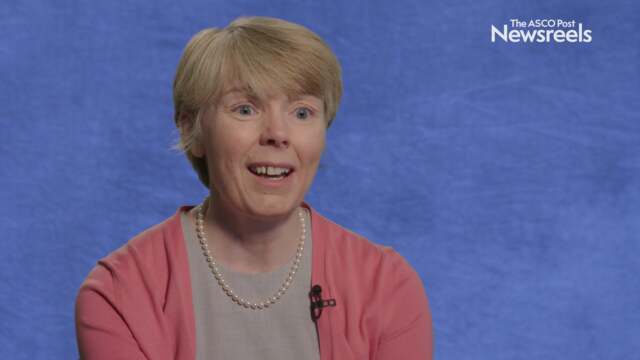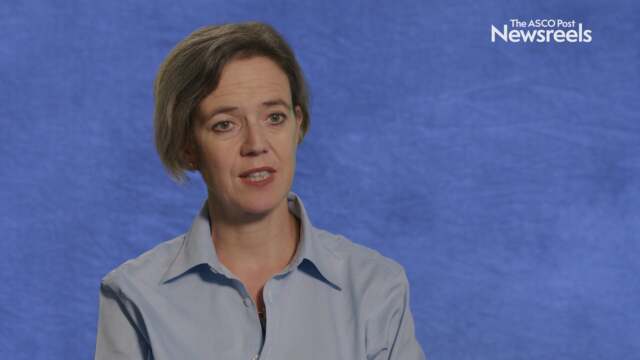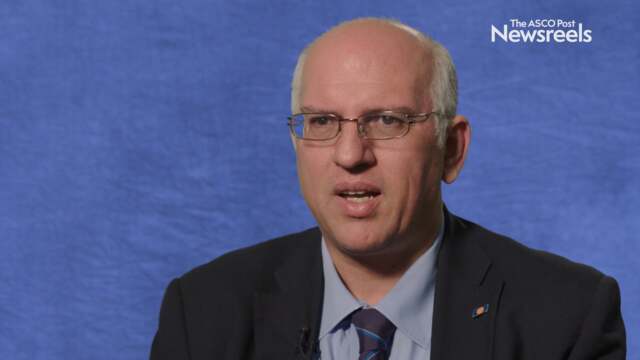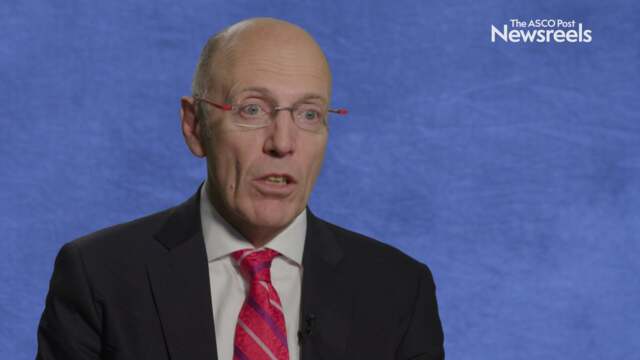Jeffrey S. Weber, MD, PhD, on Discontinuing Immunotherapy: When Is the Right Time?
ESMO 2018 Congress
Jeffrey S. Weber, MD, PhD, of the NYU Langone Perlmutter Cancer Center, discusses how long people with melanoma should be treated with PD-1 blockade and the data on remission rates.
Karl Lewis, MD, of the University of Colorado, discusses a phase II study of cemiplimab in patients with advanced basal cell carcinoma who experienced progression of disease on, or were intolerant of, prior hedgehog pathway inhibitor therapy.
For more information about this ongoing trial, visit clinicaltrials.gov
ClinicalTrials.gov ID: NCT03132636
Eileen M. O’Reilly, MD, of Memorial Sloan Kettering Cancer Center, discusses the latest information on locoregional and systemic treatments of hepatocellular carcinoma as well as targeted therapy for biliary cancer.
Sibylle Lobil, MD, PhD, of the German Breast Group, discusses findings in metastatic breast cancer from the IMpassion130 trial in triple-negative disease and from the PALOMA3 and SOLAR-1 trials in hormone receptor–positive, HER2-negative disease (Abstracts LBA1_PR, LBA2_PR, LBA3_PR).
Paolo A. Ascierto, MD, of Istituto Nazionale Tumori–Fondazione Pascale, discusses the breakthroughs in melanoma treatment and the challenges of managing toxicities, especially endocrine and neurologic side effects, which can require lifetime hormone replacement and may cause permanent dysfunction.
Nicholas D. James, PhD, MBBS, of University Hospitals Birmingham NHS Trust, discusses study findings on treating metastatic castration-sensitive prostate cancer, including results on radiotherapy and abiraterone (Abstract LBA5_PR).
